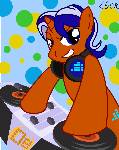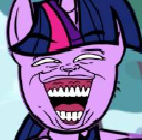The ethics of sampling...
24 posts
• Page 1 of 1
The ethics of sampling...
As you may know today I released my first song which is essentially a practice jam session with Ableton Live. Because this is my first time using the software I used samples exclusively, but in the future when I am more experienced I will be using my own clips or whatever to compose the project.
However I was wondering, in the community of electronic music, to what degree of sampling can one call a piece their own? I know people use drum samples all the time, but how about synth samples? And what do you call a composition made up of nothing but samples?
DISCUSS.
However I was wondering, in the community of electronic music, to what degree of sampling can one call a piece their own? I know people use drum samples all the time, but how about synth samples? And what do you call a composition made up of nothing but samples?
DISCUSS.
- topitmunkeydog
- Posts: 621
- Joined: 02 Jan 2013 13:43
- Location: the people's republic of freak
- OS: macaroni
- Primary: (trying to learn) ableton
- Cutie Mark: yes
Re: The ethics of sampling...
I'm usually okay with it, if they intend to one-day start making original stuff. Everybody starts somewhere.
Of course, if they intend to make sample-only stuff for the rest of their life, then that's where I draw the line.
Using instrument loops, later on, is fine. Using synth loops, not so much.
Of course, if they intend to make sample-only stuff for the rest of their life, then that's where I draw the line.
Using instrument loops, later on, is fine. Using synth loops, not so much.
-

Gray Ham - Posts: 345
- Joined: 11 Mar 2012 20:52
- Location: Melbourne, Australia
- OS: Win7
- Primary: ACID
- Cutie Mark: A Trumpet
Re: The ethics of sampling...
I have never sampled before, but /i think that as long as you only take really short samples that are less than maybe 2 seconds long at max, and maybe 3 different samples used slightly, but I'm pretty big on originality. Unless you're sampling drums.
-

itroitnyah - Posts: 2482
- Joined: 02 Mar 2012 20:27
- OS: Windows 7
- Primary: FL Studio 11
- Cutie Mark: Blank flank
Re: The ethics of sampling...
Depends what you mean by samples. Samples can be little vocal clips, one shot drum sounds, or loops.
All of the above are perfectly doable and useful. Look at Daft Punk for instance. They rely very heavily on looping. (look at the song Cola Bottle Baby for instance.)
Also, why the hell are "instruments loops" okay but "synth loops" aren't? lol Using any form of loop straight out of the box in the long term is kind of sketchy, be it guitar loops, drum loops or synth loops, but there is a lot of stuff you can do to create unique sounds out of pre-done loops/material.
Case and point: https://www.youtube.com/watch?v=eU5Dn-WaElI
All of the above are perfectly doable and useful. Look at Daft Punk for instance. They rely very heavily on looping. (look at the song Cola Bottle Baby for instance.)
Also, why the hell are "instruments loops" okay but "synth loops" aren't? lol Using any form of loop straight out of the box in the long term is kind of sketchy, be it guitar loops, drum loops or synth loops, but there is a lot of stuff you can do to create unique sounds out of pre-done loops/material.
Case and point: https://www.youtube.com/watch?v=eU5Dn-WaElI
-

Foxtrot89 - Posts: 201
- Joined: 10 Jul 2012 09:49
- Location: Rhode Island
Re: The ethics of sampling...
I call a song that samples a hook or a chorus hip-hop, and a song made of nothing but samples Truxton.
-

colortwelve - Posts: 1187
- Joined: 18 Feb 2012 12:55
- Location: Los Angeles, CA
Re: The ethics of sampling...
hello, someone summoned me?
ah yes, samples.
SAMPLE EVERYTHING ALL THE TIME
where to draw the line? basically shorter (and/or more manipulated) samples = better
manipulation is also pretty key, imo.
for example, I sampled the score from The Jiggler in my Soft Spectrum song.
I'd be surprised if you could spot what I used and where.
(incidentally, The Jiggler also has some excellent uses of sampling.)
the only "don't" I can think of is just..."don't take 4 bars from a song and add nothing else to the finished product".
I also discourage using premade loops for important roles in a song, since they are usually fairly easy to spot. :)
ah yes, samples.
SAMPLE EVERYTHING ALL THE TIME
where to draw the line? basically shorter (and/or more manipulated) samples = better
manipulation is also pretty key, imo.
for example, I sampled the score from The Jiggler in my Soft Spectrum song.
I'd be surprised if you could spot what I used and where.
(incidentally, The Jiggler also has some excellent uses of sampling.)
the only "don't" I can think of is just..."don't take 4 bars from a song and add nothing else to the finished product".
I also discourage using premade loops for important roles in a song, since they are usually fairly easy to spot. :)
-

sci - Posts: 369
- Joined: 29 Jun 2011 15:26
- Location: music
- OS: WinXP, plus a Win 98 laptop
- Primary: OpenMPT
- Cutie Mark: Sampling
Re: The ethics of sampling...
There is DJ Shadow, who released an album (Endtroucing...) of nothing but music made with samples. I can't actually find a single bad review of it. Not a single critic seemed to discredit him for his usage of samples and samples only, most of them actually thought it was brilliant, the way that he managed to use samples never put together before to make incredible new songs with them.
I'd say that sampling, even with instrument loops is okay; but try to make them your own. I agree with sci, don't use premade loops (ones that come with your DAW; ugh) if possible. Don't just use a sample and do nothing with it. Try to go with samples that people will wonder, "woah, did they do this?", ones that are not overly used.
(But then there's samples like the amen break, which basically cross-out every I just said.)
I'd say that sampling, even with instrument loops is okay; but try to make them your own. I agree with sci, don't use premade loops (ones that come with your DAW; ugh) if possible. Don't just use a sample and do nothing with it. Try to go with samples that people will wonder, "woah, did they do this?", ones that are not overly used.
(But then there's samples like the amen break, which basically cross-out every I just said.)
-

Somasis - Posts: 9
- Joined: 25 Nov 2012 02:52
- OS: Linux
- Primary: FL Studio
- Cutie Mark: ≡
Re: The ethics of sampling...
As long as it's new, unique, and fun/good to listen to, it's fine.
My music: https://soundcloud.com/orangebeats-1
-

Orange - Posts: 29
- Joined: 20 May 2012 13:20
Re: The ethics of sampling...
Just don't use overly long samples or loops or something. Then you're fine in others' eyes.
For me, I don't care, as long as it sounds nice.
For me, I don't care, as long as it sounds nice.
-

Mundius - Posts: 400
- Joined: 30 Jun 2011 13:36
- OS: Horse OS
- Primary: Not yet specified.
- Cutie Mark: Blank flank
Re: The ethics of sampling...
Samples in any form other then a single drum hit in my eyes are bad, and I would never use them in m music, but in the end its up to you. If you can see using stuff other people made as your own then go ahead. My morals are against it, but if you need too to create your music go ahead.
https://soundcloud.com/flatflish/a-warm-past
DAW: Logic 9
Vst's: Absynth, Battery, FM8, Guitar Rig, Kontakt, Massive, Maschine
Real Instruments: Acoustic/Electric Guitar, Cello, Piano
Youtube | Soundcloud |Tutors Thread |Skype: Flatflish |
DAW: Logic 9
Vst's: Absynth, Battery, FM8, Guitar Rig, Kontakt, Massive, Maschine
Real Instruments: Acoustic/Electric Guitar, Cello, Piano
Youtube | Soundcloud |Tutors Thread |Skype: Flatflish |

-

Conduit - Posts: 494
- Joined: 12 Mar 2012 20:48
- Location: Alberta, Canada
- OS: Windows 8
- Primary: Logic Pro 9
- Cutie Mark: Strings
Re: The ethics of sampling...
Flatflish wrote:Samples in any form other then a single drum hit in my eyes are bad, and I would never use them in m music, but in the end its up to you. If you can see using stuff other people made as your own then go ahead. My morals are against it, but if you need too to create your music go ahead.
I never understood why this is =/. You people must hate the crap outa Daft Punk and similar producer(s)..
My music: https://soundcloud.com/orangebeats-1
-

Orange - Posts: 29
- Joined: 20 May 2012 13:20
Re: The ethics of sampling...
Well, I typically listen to things like Two Steps From Hell, or other orchestral / filmscore type stuff. I dont have anything against edm, and listen to a fair bit of it, but I cant say I'm well informed as to how specific artists make their stuff.
https://soundcloud.com/flatflish/a-warm-past
DAW: Logic 9
Vst's: Absynth, Battery, FM8, Guitar Rig, Kontakt, Massive, Maschine
Real Instruments: Acoustic/Electric Guitar, Cello, Piano
Youtube | Soundcloud |Tutors Thread |Skype: Flatflish |
DAW: Logic 9
Vst's: Absynth, Battery, FM8, Guitar Rig, Kontakt, Massive, Maschine
Real Instruments: Acoustic/Electric Guitar, Cello, Piano
Youtube | Soundcloud |Tutors Thread |Skype: Flatflish |

-

Conduit - Posts: 494
- Joined: 12 Mar 2012 20:48
- Location: Alberta, Canada
- OS: Windows 8
- Primary: Logic Pro 9
- Cutie Mark: Strings
Re: The ethics of sampling...
here I'll help:
let's make a house song!
house means "a kick on every beat" but that's pretty boring by itself. we need to find something to sample... ("something" means "disco" when we are talking about french house)
so let's see.......
0:05 hmm not bad so far
0:11 HOLY FUCK STOP THE RECORD WE HAVE OUR SAMPLE
take that riff, loop it, apply filters and phasers haphazardly, and play it on top of a basic house beat
BLAM, INSTA-AWESOME HOUSE SONG
(but 4srs, sampling is hella important to these genres. see my other post on the matter.)
let's make a house song!
house means "a kick on every beat" but that's pretty boring by itself. we need to find something to sample... ("something" means "disco" when we are talking about french house)
so let's see.......
0:05 hmm not bad so far
0:11 HOLY FUCK STOP THE RECORD WE HAVE OUR SAMPLE
take that riff, loop it, apply filters and phasers haphazardly, and play it on top of a basic house beat
BLAM, INSTA-AWESOME HOUSE SONG
(but 4srs, sampling is hella important to these genres. see my other post on the matter.)
-

sci - Posts: 369
- Joined: 29 Jun 2011 15:26
- Location: music
- OS: WinXP, plus a Win 98 laptop
- Primary: OpenMPT
- Cutie Mark: Sampling
Re: The ethics of sampling...
I feel as if this is very relevant:
http://www.youtube.com/watch?v=eU5Dn-WaElI
This is the kind of sampling I love.
http://www.youtube.com/watch?v=eU5Dn-WaElI
This is the kind of sampling I love.
My music: https://soundcloud.com/orangebeats-1
-

Orange - Posts: 29
- Joined: 20 May 2012 13:20
Re: The ethics of sampling...
https://www.youtube.com/watch?v=YXR3TfKsCWc
Renard is a perfect example for this. I honestly could have took ANY Renard song practically, but this one gets the point across just fine.
At the section at 2:57 (my favorite part of that whole song), he samples actually the vocals used earlier in the song. This might be a stretch as far as the word sampling goes, some might say "that's just vocal chopping", but I digress. Renard taught me that samples could be used to add to a song the same way an instrument can, even vocal samples.
Of course obligatory Pinkie Pie Swear comment here.
Obligatory Sci comment but he's already here.
Obligatory Mumble comment.
you get the picture.
Renard is a perfect example for this. I honestly could have took ANY Renard song practically, but this one gets the point across just fine.
At the section at 2:57 (my favorite part of that whole song), he samples actually the vocals used earlier in the song. This might be a stretch as far as the word sampling goes, some might say "that's just vocal chopping", but I digress. Renard taught me that samples could be used to add to a song the same way an instrument can, even vocal samples.
Of course obligatory Pinkie Pie Swear comment here.
Obligatory Sci comment but he's already here.
Obligatory Mumble comment.
you get the picture.
- Raddons
- Posts: 685
- Joined: 13 Jun 2012 20:57
- OS: Horse OS
- Primary: Not yet specified.
- Cutie Mark: Blank flank
Re: The ethics of sampling...
Sampling is awesome but sampling distorted kicks is seriously uncool.
- Icky
- Posts: 272
- Joined: 30 Jun 2011 09:23
Re: The ethics of sampling...
OK, that all makes very much sense. I believe what I used for my improv were loops included with Ableton. And yeah, I plan on switching away from those once I get a feel for the software and its nuances.
Speaking of songs made only of samples how about Pop Culture by Madeon? (I have no idea if someone's already posted this because I am using my iPod...) he has a similar device to what I've got anyway.
Speaking of songs made only of samples how about Pop Culture by Madeon? (I have no idea if someone's already posted this because I am using my iPod...) he has a similar device to what I've got anyway.
- topitmunkeydog
- Posts: 621
- Joined: 02 Jan 2013 13:43
- Location: the people's republic of freak
- OS: macaroni
- Primary: (trying to learn) ableton
- Cutie Mark: yes
Re: The ethics of sampling...
Just gonna leave this here.
-

colortwelve - Posts: 1187
- Joined: 18 Feb 2012 12:55
- Location: Los Angeles, CA
Re: The ethics of sampling...
Sampling actually is the cornerstone of EDM and the golden age of hip-hop. As people have pointed out many top-notch and well respect musicians are heavy samplers; Daft Punk, Fatboy Slim, Prodigy, Dj Shadow, Kanye West, the Dust Brothers, and countless drum & bass, hardcore, and hip-hop artist. There are plenty of music snobs who say that sampling is bad as you've seen above but really most of these people are really the kind of naysers who have closed minds about how you should make your music anyway (and make it how YOU want it) and have no grasp of this history of it. Again so many bronies actually use show samples in their music it's kinda silly to put your nose up to your fellow musicians.
Here's a few important videos on sampling and how awesome it can be
Again the biggest point i gotta make is sampling well is an ART. It also makes new music out of the old. Connects the past to the present. Imagine how amazing it is that an old forgotten record can find new life in new music. Course, hunting down exotic and unused samples is better than Puffy rapping over Kashmir.
All i can say for ETHICS is don't sample licensed (music that was published for money) w/o credits AND for your personal sale. I've seen a well known brony musican do that on SEVERAL pino albums (Phil Collins, Stardust, countless disco artists, etc) and then charge money which IS unethical and disregarding copyright law mind you. If you are going to use other people samples and expect PAYMENT for your track you gotta pay FOR that sample. You make music for free?; sample away and try to give credit when you can and def when its appropriate....
Here's a few important videos on sampling and how awesome it can be
Again the biggest point i gotta make is sampling well is an ART. It also makes new music out of the old. Connects the past to the present. Imagine how amazing it is that an old forgotten record can find new life in new music. Course, hunting down exotic and unused samples is better than Puffy rapping over Kashmir.
All i can say for ETHICS is don't sample licensed (music that was published for money) w/o credits AND for your personal sale. I've seen a well known brony musican do that on SEVERAL pino albums (Phil Collins, Stardust, countless disco artists, etc) and then charge money which IS unethical and disregarding copyright law mind you. If you are going to use other people samples and expect PAYMENT for your track you gotta pay FOR that sample. You make music for free?; sample away and try to give credit when you can and def when its appropriate....
Last edited by Freewave on 23 Jan 2013 18:02, edited 1 time in total.
Links for my music: YouTube, Bandcamp, and Tumblr
Check out the Brony Music Directory and FimMusic. A portal for all pony music

Support the 20+ Musician Maressey Project currently underway.
Check out the Brony Music Directory and FimMusic. A portal for all pony music

Support the 20+ Musician Maressey Project currently underway.
-

Freewave - Posts: 3193
- Joined: 29 Nov 2011 12:33
- Location: Denver
- OS: Windows 7
- Primary: Fl Studio 10
- Cutie Mark: X$X
Re: The ethics of sampling...
Well, let's talk about several things.
First off, let's talk about the law. This is the easiest one to talk about. If you want to protect yourself legally, the shorter the sample, the more you add to the track to make it your own, and the more you alter the original track, the better. That's pretty much where it ends. There are some places with unlicensed stuff that you can go out and find, which protect you the best, because there's a guarantee of no legal recourse if you don't even bother to credit them. But if it's published by the big three, you're probably at your best if you're trying to keep it from being recognized. The other side of the spectrum is playing back someone else's track, and calling it an "installation piece." ("The DJ" will be on display at MoMa from Feb. 19th 2013 until Mar. 15th 2013 [that was facetious].) Somewhere between there, it becomes illegal.
As far as the ethics, it begins to get blurry really quick. Part of the problem is that sampling's place in the creation of art is nebulously defined. Genuinely creative and engaging stuff is constantly put out which is made almost entirely of stuff recorded by other people. The side of the coin that says that that is absolutely wrong is kind of also saying it's wrong to make music that makes people happy, and demonstrates artistic sensibility. And really Granted, there's always the argument that someone else did the work to produce that recording, and they deserve to be compensated or recognized for it. As far as recognition goes, that's as simple as telling people where you got the sample. But personally, I think licensing samples goes very quickly from fair compensation to gouging, and the ethics of stealing from the people that do that break down pretty quickly. Ultimately, I couldn't say sampling is ethically wrong at any level. It just requires a bit of sensitivity.
Finally, there's the question of artistic merit. This is even harder, since it's really going to depend on what you want to concede to being art. There are people out there who will strenuously argue that "The DJ" would be a very insightful and powerful art installation if it actually existed. And hell, if it got the artist involved his/her paycheck, then who's to say those people are wrong. Then you'd have people who'd note that really, that kind of thing requires very little work or skill. Of course, maybe that's the point. The problem with analyzing the artistic merit of any artistic endeavor is the likelihood that it will precipitate just this kind of navel-gazing. But normally, it's enough to treat sampling as a cool way to experiment and spice up your music, so why not do it.
First off, let's talk about the law. This is the easiest one to talk about. If you want to protect yourself legally, the shorter the sample, the more you add to the track to make it your own, and the more you alter the original track, the better. That's pretty much where it ends. There are some places with unlicensed stuff that you can go out and find, which protect you the best, because there's a guarantee of no legal recourse if you don't even bother to credit them. But if it's published by the big three, you're probably at your best if you're trying to keep it from being recognized. The other side of the spectrum is playing back someone else's track, and calling it an "installation piece." ("The DJ" will be on display at MoMa from Feb. 19th 2013 until Mar. 15th 2013 [that was facetious].) Somewhere between there, it becomes illegal.
As far as the ethics, it begins to get blurry really quick. Part of the problem is that sampling's place in the creation of art is nebulously defined. Genuinely creative and engaging stuff is constantly put out which is made almost entirely of stuff recorded by other people. The side of the coin that says that that is absolutely wrong is kind of also saying it's wrong to make music that makes people happy, and demonstrates artistic sensibility. And really Granted, there's always the argument that someone else did the work to produce that recording, and they deserve to be compensated or recognized for it. As far as recognition goes, that's as simple as telling people where you got the sample. But personally, I think licensing samples goes very quickly from fair compensation to gouging, and the ethics of stealing from the people that do that break down pretty quickly. Ultimately, I couldn't say sampling is ethically wrong at any level. It just requires a bit of sensitivity.
Finally, there's the question of artistic merit. This is even harder, since it's really going to depend on what you want to concede to being art. There are people out there who will strenuously argue that "The DJ" would be a very insightful and powerful art installation if it actually existed. And hell, if it got the artist involved his/her paycheck, then who's to say those people are wrong. Then you'd have people who'd note that really, that kind of thing requires very little work or skill. Of course, maybe that's the point. The problem with analyzing the artistic merit of any artistic endeavor is the likelihood that it will precipitate just this kind of navel-gazing. But normally, it's enough to treat sampling as a cool way to experiment and spice up your music, so why not do it.
-

ph00tbag - Global Moderator
- Posts: 769
- Joined: 06 May 2012 16:19
- Location: Cary, NC
- OS: Windows
- Primary: FL Studio
- Cutie Mark: Blank flank
Re: The ethics of sampling...
Goodness... After another improvised session of Ableton Live, I have decided that I don't even want to use samples... See, this is what happened (turn down your volume): http://www.filedropper.com/fartstep
I believe what I originally intended to ask about was essentially what degree of using loops on Ableton can be considered your own work, but after that trainwreck of a song I just made I think I'd better stay away from loops for the sake of humanity.
Here is the song made completely of samples from other songs. I especially love the way he included The Buggles. =^.^=
Thanks everybody for your insight on the topic
I believe what I originally intended to ask about was essentially what degree of using loops on Ableton can be considered your own work, but after that trainwreck of a song I just made I think I'd better stay away from loops for the sake of humanity.
Here is the song made completely of samples from other songs. I especially love the way he included The Buggles. =^.^=
Thanks everybody for your insight on the topic
- topitmunkeydog
- Posts: 621
- Joined: 02 Jan 2013 13:43
- Location: the people's republic of freak
- OS: macaroni
- Primary: (trying to learn) ableton
- Cutie Mark: yes
Re: The ethics of sampling...
Icky wrote:sampling distorted kicks is seriously uncool.
Cannot agree more
Soundcloud : http://www.soundcloud.com/megapie-1
Youtube : http://www.youtube.com/user/antigravtoast2/featured
-I'm not Dead, I just don't make small horse music anymore-
Youtube : http://www.youtube.com/user/antigravtoast2/featured
-I'm not Dead, I just don't make small horse music anymore-
-

K3WRO - Posts: 696
- Joined: 20 Apr 2012 08:58
- Location: Sasebo, Japan
- OS: Windows 7 Professional 64x
- Primary: Reason
- Cutie Mark: Your Face
Re: The ethics of sampling...
topitmunkeydog wrote:Goodness... After another improvised session of Ableton Live, I have decided that I don't even want to use samples... See, this is what happened (turn down your volume): http://www.filedropper.com/fartstep
I believe what I originally intended to ask about was essentially what degree of using loops on Ableton can be considered your own work, but after that trainwreck of a song I just made I think I'd better stay away from loops for the sake of humanity.
Here is the song made completely of samples from other songs. I especially love the way he included The Buggles. =^.^=
Thanks everybody for your insight on the topic
Hot damn that sounds sexy.
I have a question though.
What is that device he is using? I've seen it before, but I'm also retard in the line of music-tech.
Spoiler woof:
-

SticktheFigure - Posts: 202
- Joined: 15 Oct 2012 16:25
- Location: Pittsburgh, PA
- OS: Windows Vista
- Primary: FL Studio
- Cutie Mark: Piano
Re: The ethics of sampling...
That one is a Novation Launch Pad. I was considering getting it but I got the APC20 for the same price. They're pretty much the same I guess.
- topitmunkeydog
- Posts: 621
- Joined: 02 Jan 2013 13:43
- Location: the people's republic of freak
- OS: macaroni
- Primary: (trying to learn) ableton
- Cutie Mark: yes
24 posts
• Page 1 of 1
Who is online
Users browsing this forum: No registered users and 1 guest





